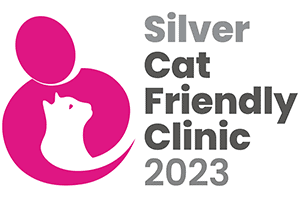What are fleas?
Fleas are small insects that feed on the blood of other animals - up to 15 times their body weight in a single day.
Even though the adult fleas are visible to the naked eye, they are still sometimes difficult to detect on your pet. The eggs laid by the female within 24-48 hours of feeding are shed from the animal and into the environment, i.e.: house. The larvae hatched from the eggs can survive for up to a year in the environment and burrow into dark nook and crannies like carpets, sofas and beds. Once the larvae develop through their pupae stage and into adult fleas, they use their powerful jumping ability to find a host animal to feed off and the lifecycle starts again. Just one flea can become 1000 in just 21 days!
How does my cat get fleas?
Most flea infestations are NOT acquired from other pets. Fleas can jump onto your pet in public parks, wooded areas, on beaches or even in your own garden. Fleas are no longer the seasonal visitor they used to be - fleas are present year-round due to the milder climates and central heated homes.
Why do I need to protect my cat against fleas?
Fleas can pose a serious threat to your pet’s health. Moreover, they can make you and your pet miserable.
Fleas cause severe discomfort causing your pet to scratch, chew and bite themselves potentially causing harm in the process. They can also cause serious skin conditions such as flea allergy dermatitis, one of the most common skin conditions in pets. Also, severe flea infestations can cause anaemia. From this point of view, kittens, puppies and ill adult pets are especially at risk of this serious complication. If the flea is ingested by the pet while grooming, tapeworm infection can be transmitted. Also, fleas can also bite humans, and this not only causes irritation but can cause an allergic reaction.
In addition, fleas can also transmit a bacterial disease known as “cat scratch disease” which can be caught by people causing flu-like symptoms.
What can I do to protect my cat from fleas?
The best way to deal with fleas is to prevent them living on your pet in the first place. We always recommend using monthly flea products, thus killing the adult fleas and preventing the development of their young. Essentially, the most effective options are a spot-on treatment to the back of your pet’s neck, or a palatable tablet (this is particularly suitable for those pets who like to swim or are groomed regularly). Contact us for the most effective products available on the market.
What to do if my cat gets fleas?
Once an infestation has taken hold in an environment, like a home, it can take up to 3 months to be eliminated.
Phase 1: Treat ALL your pet with a fast-acting flea product.
Phase 2: Treat your environment. Use a suitable insecticide in the house and hot wash all pet’s bedding and blankets.
Please remember that it can take time to eliminate a flea burden.
If you’re worried about how to prevent fleas or how to deal with an infestation come along to us for a FREE nurse consultation at any of our surgeries (an appointment may be necessary).




